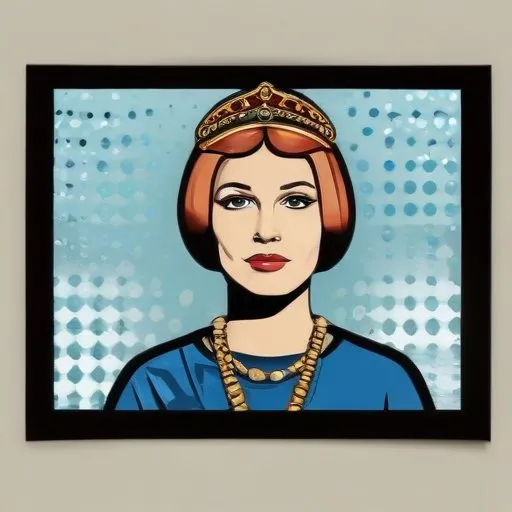
A member of the powerful Sforza dynasty, she was a patron of the arts and a skilled politician who played a key role in 15th-century Italian politics.
Ippolita Maria Sforza was a true Renaissance woman, known for her exceptional intelligence, cultural sophistication, and untamed passion for life. As the daughter of Francesco Sforza, the Duke of Milan, and Bianca Maria Visconti, she was born into a life of luxury and intrigue, but it was her own remarkable talents and personality that would make her a legend in her own right.
Ippolita was born on April 18, 1445, in Jesi, Italy, and from a young age, she demonstrated a precocity of intellect and a love for learning. Her father, Francesco, recognized her talents and encouraged her to develop them, often giving her greyhounds for her country estates and inviting renowned scholars to tutor her.
Ippolita's education was truly fit for a queen. She had four esteemed masters: Guiniforte Barzizza, Baldo Martorelli, Costantino Lascaris, and an unknown fourth tutor. Under their guidance, she studied Greek, Latin, and the humanities, becoming fluent in multiple languages and developing a deep appreciation for classical literature.
At just 14 years old, Ippolita made a remarkable Latin address to Pope Pius II at the Diet of Mantua, which circulated in manuscript and earned her widespread acclaim. Her eloquence, poise, and intellectual prowess made her a sought-after mediator and ambassador, often called upon to intermediate between her father and other prominent figures of the time.
Ippolita's physical beauty was matched only by her inner charm. Described by Giovanni Sabatino degli Arienti as "beautiful, white, blonde, with beautiful eyes, a slightly aquiline nose, and a majestic presence," she was a true Renaissance beauty. Her hands were said to be "as if ivory-colored, with long fingers," and her speech was "fluent and eloquent in sweet accents and resonance."
In 1465, Ippolita married Alfonso II of Naples, the Duke of Calabria, in a lavish ceremony that solidified the alliance between the Sforza and Aragonese courts. Though her marriage was marked by periods of turmoil and estrangement, Ippolita remained a steadfast and devoted partner, using her diplomatic skills to navigate the treacherous waters of royal politics.
Ippolita Maria Sforza may have lived in the 15th century, but her influence extends far beyond her own time. As a pioneering female figure in a male-dominated era, she paved the way for future generations of women to pursue careers in letters, politics, and the arts. Her remarkable story serves as a testament to the power of education, determination, and passion, inspiring countless individuals to this day.
Ippolita Maria Sforza's remarkable life and legacy continue to captivate and inspire, serving as a beacon of hope for anyone who dares to dream big and challenge the status quo.

Born in 1452
Ruler of Milan who commissioned Leonardo da Vinci's famous painting, The Last Supper, and was a patron of the arts and architecture.
Born in 1452
Renaissance mastermind behind iconic works like the Mona Lisa and The Last Supper, who revolutionized art, science, and engineering with his inventive and curious nature.
Born in 1475
A ruthless and cunning politician who rose to power in the Renaissance era through intrigue and military conquest, leaving a lasting legacy in politics and governance.
Born in 1480
The illegitimate child of a powerful pope, known for her ruthless politics, alleged poisonings, and scandalous marriages that shaped the Italian Renaissance.
Born in 1431
Ruthless and cunning, this Pope was infamous for his corrupt and immoral ways, using his power to further his family's interests.
Born in 1469
Ruler of Milan who transformed the city into a cultural and economic hub, commissioning grand architectural projects and fostering a Renaissance humanist movement.